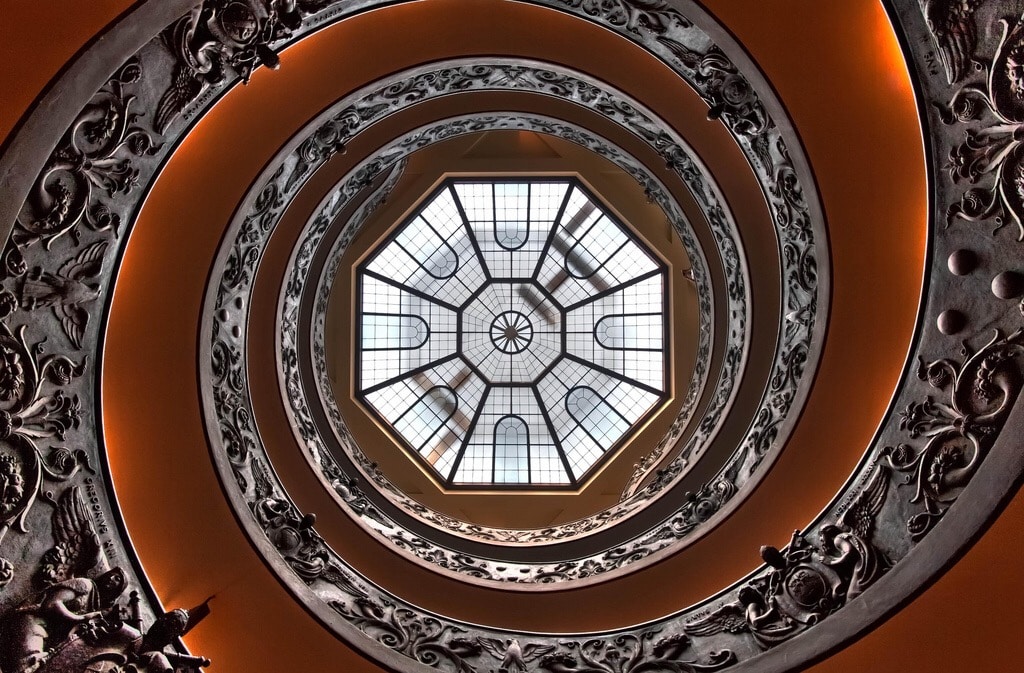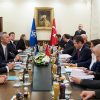
Two Irish Roman Catholic archbishops, the Primate of All Ireland, Eamon Martin, and Diarmuid Martin, the Archbishop of Dublin, have said that the vote to legalise abortion reflects the waning influence of the Roman Catholic Church in that country. Ireland is coming into line with the rest of Western Europe. In one of his last encyclicals, Ecclesia in Europa , released in 2003, the then Pope John Paul II referred to the ‘the de-christianisation of vast areas of the European continent’. However, in an interview he gave in 2016, the year in which he received the Charlemagne Prize, Pope Francis, an Argentine by birth, said that talk of the Christian roots of Europe often ‘takes on colonialist overtones’.
The influence of religion stems, among other things, from beliefs, identity, practice and institutions. In general –despite the fact that several countries in the EU have some form of Christianity as their official state creed–, religion has lost influence in Western Europe, whether in terms of beliefs, religious practice or institutions, although less so in terms of identity. A new report from the US-based Pew Research Center, focusing on 15 countries, suggests that secularism has made inroads into Western Europe, but a majority of people identify as Christians. In a range of countries, half of the people polled describe themselves as neither religious nor spiritual.
In Western Europe (which excludes Greece, Europe’s most religious country), Portugal (at 83%), Italy and Ireland (at 80%) are among the countries with the strongest Christian identity (66% in Spain). In the UK, where a religious ceremony such as the wedding of Prince Harry and Meghan Markle recently attracted so much attention, and where there is an established Anglican church of which Queen Elizabeth II is the Supreme Governor (an essentially symbolic title), only 18% of people describe themselves as practising Christians (meaning they attend church at least once a month), compared with 55% non-practising Christians (in Spain 21 % of the population consider themselves ‘practising’). Clear majorities throughout the region, including among Christians, declare their support for homosexual marriage, abortion and, unsurprisingly, the separation of religion and politics.
Interestingly, non-practising Christians in the region are more likely than the religiously unaffiliated to express positive opinions about religious institutions. Another of the survey’s interesting findings is that a Christian identity is linked to higher levels of nationalism and negative views of immigrants and religious minorities, including Muslims –whose presence has grown– and Jews (attitudes that are correlated with each other).
An earlier study of Eastern Europe suggests that there is a clear continental division when it comes to religiosity. In general (the great exception is the largely non-believing Czech Republic), eastern Europeans are more religious than their western counterparts. The same even applies to Russia, where Putin has formed an alliance with the Orthodox Church. According to another report, this time from the Benedict XVI Centre, the proportion of people aged 16-29 who identify as Roman Catholics exceeds 50% only in Poland, Lithuania, Slovenia, Ireland and Portugal (the figure for Spain is 37%), although the Vatican’s statistics indicate that the number of baptisms in Europe is increasing slightly.
There is a Western European exceptionalism in religious matters. One country that used to diverge from Western Europe in this respect was the US. Things have changed however, even though the Christian right-wing, including evangelicals, wields undoubtable political clout. Unlike some decades ago, almost one quarter of Americans (23%) now describe themselves as atheists, agnostics or ‘nothing in particular’, a similar proportion to those in Germany and the UK (with 30% falling into this category in Spain).
In the world as a whole, however, the sociology of religion presents a different picture. Another Pew study from 2017 shows that it is the southern hemisphere that accounts for most of the growth in Christianity, especially sub-Saharan Africa, which is on course to provide 42% of the world’s Christians by 2060, up from 26% today, owing to the region’s high birth rates. In 2015 Christians were the largest religious group in the world, accounting for 31% of the global population of 7.3 billion, compared with 24% Muslims, 16% non-believers, 15% Hindus and 7% Buddhists (if indeed Buddhism qualifies as a religion).
The abortion referendum in Ireland –a ‘quiet revolution’ according to the Prime Minister, Leo Varadkar– has called attention to something else: the contrast with Northern Ireland. The six counties, where religion still holds sway –even pitting Roman Catholics against Protestants–, are one of the few parts of Europe where abortion remains illegal, highlighting a distinction between the two Irelands. Perhaps what has happened in the Republic will serve to change things in the North, or to underline that the separation is even more complex than it usually seems.


